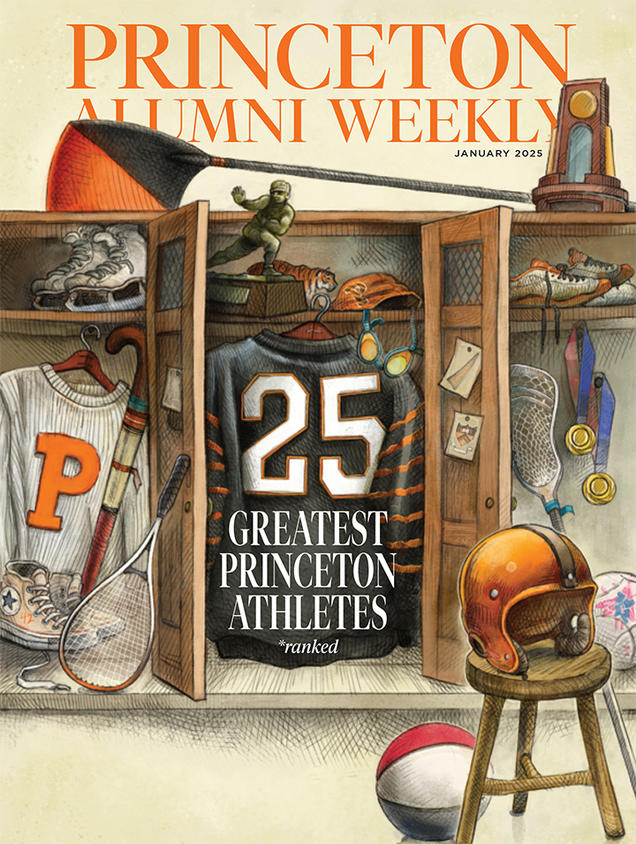Alfred Gregory Nowakoski Jr. ’48
Some called him Greg, others called him Moose, but all agreed he brought much more than his Australian hat and flag to the P-rade and class gatherings. He could evoke "love at first laugh." He was quite irresistible. His death on Feb. 12, 1999, leaves us bereaved.
Moose was on his way from Salisbury School to Yale when the Navy decided the V-12 unit at Princeton was just the spot for him. He rowed on the 150-lb. crew and dined at Quadrangle until summer 1948, when he joined his father's NYC real estate firm. After two years he left for Paris and the ECA program. In 1954 he joined the Foreign Service, earned his degree from Columbia, and received his mail (serially) at Paris, Reykjavik, Nice, Tehran, Warsaw, and Bamako.
Along the way his marriage came apart, and he lived in the Adirondacks and later in NYC. He fathered three daughters, Ditto, Echo, and Greenough, and a son, Peter '90. His final years were at Taos amid friends and Ditto's loving, watchful eyes. At death he was laid out in Princeton tie -- beneath his portrait, executed by Ditto. His memorial gathering was held, fittingly, at the Alley Cantina -- a favorite watering spot. The tributes to Moose were honest and irreverent. The barman wondered if he'd been had all these years with Moose's cheery "top me off, sport."
The Class of 1948
Paw in print
Book Club.
Join and Read With Us.


